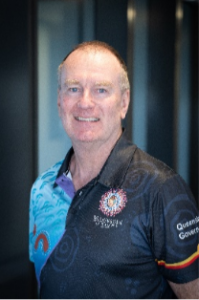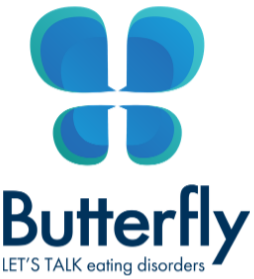

Counsellors in Catholic Secondary Schools Queensland
Welcome
The Association of Counsellors in Catholic Secondary Schools Queensland (ACCSSQ) is a volunteer run, not for profit organisation, made up of counsellors from South East Queensland. This year the committee is excited to announce its 2024 Conference.
Diamonds and Pearls – a 30 year celebration
12-13 September 2024 at The Sofitel, Broadbeach, GOLD COAST
The ACCSSQ Invitation extends to school counsellors / psychologists / pastoral staff and mental health professionals in the Non-Government and Government sectors.
We invite all with involvement and interest in Student Wellbeing across primary and secondary school settings to join with us. In 2024 we will be celebrating 30 years of ACCSSQ Conferences (1994-2024). Check back regularly for new exciting keynote announcements.
Conference Presenters (Click on presenters name to view)
- Dr Louise Hayes
- Dr Tom Brunzell
-
Fetal Alcohol Syndrome
Disorder Clinic - Dr Madeline Wishart
- Dr Chris Wever
- Butterfly Foundation

Topic: Helping young people find themselves and connect with others by developing flexibility with their thoughts, feelings and actions
Everything changes in adolescence. The developmental period brings significant change to the physical self, thoughts, feelings and identity. We also enter a period of social growth, extending ourselves out into the world of friendships, social connections, and independence. Today, young people also have to manage these changes in the context of social upheaval that can bring existential crises too.
This talk will discuss a clear and precise framework to help young people grow and develop their abilities so they can become stronger and maximise their abilities. It will describe DNA-v, which is the distillation of cutting-edge CBS for growth. This model uses research from evolutionary science, behavioural science, ACT, compassion research, and positive psychology to create a new paradigm for promoting vital living. DNA-V has sparked multiple developments, from curriculum development for schools through to working with youth in poverty and out-of-home care.
Dr Louise Hayes is a clinical psychologist, author, international speaker, and educator. She is a Fellow and Past President of the Association for Contextual Behavioural Science. Louise currently holds a position as Adjunct Senior Research Fellow at La Trobe University, where she collaborates on projects using contextual behavioural science. She is a peer-reviewed Acceptance and Commitment Therapy/Training (ACT) trainer engaged in training professionals worldwide. She is also a certified Buddhist meditation teacher in the Dzogchen tradition. Together with Joseph Ciarrochi, she developed DNA-v, a leading acceptance and commitment therapy model that has sparked international studies. In 2022 she released a new book for helping adults thrive in the face of change – What Makes You Stronger. She is the co-author of two best-selling books for young people – Get Out of Your Mind and Into Your Life for Teenagers; and Your Life Your Way. She is also the co-author of the practitioner book, The Thriving Adolescent. Louise is an active clinician, working with adults and adolescents. Louise’s passion project and the highlight of her work is establishing a not-for-profit endeavour of taking professionals on the journey of their life into the Himalayas to develop their mindful way of being while raising funds to help children in remote Nepal.

Topic: Strategies for school counsellors to fortify engagement with learning
Berry Street’s research and practices suggest that students who struggle with on-task learning require targeted strategies from their teachers. Further, teachers often require targeted strategies and support from school counsellors and allied school wellbeing professionals. Helping students meet their own needs for learning in helpful ways can be sustained when all adult staff work from a unified values-base in addition to ensuring consistent messaging and practice with students. Dr Tom Brunzell will provide the language and strategies for counsellors to share with teachers and allied staff including the promotion of co-regulation, self-regulation, strengths-based feedback and unconditional positive regard across your schools.
Dr Tom Brunzell (MST, EdM, PhD) has experience as a teacher, school leader, researcher and education advisor. Currently he is the Director of Education at Berry Street and Honorary Fellow at the University of Melbourne Faculty of Education. Tom presents internationally on topics of transforming school culture, student engagement, trauma-informed practice, wellbeing and positive psychology, and effective school leadership.

Topic: Fetal Alcohol Spectrum Disorder (FASD) in the educational context
The CDS Gold Coast Fetal Alcohol Spectrum Disorder Clinic was established by Professor Doug Shelton in 2014 with the aim of providing comprehensive, diagnostic assessments to young people who present with pre-natal alcohol exposure and concerns around development, learning and/or behaviour.
The clinic provides assessment for young people within the Gold Coast Health District or outside of the district where no other equivalent service is available. The outcome of the diagnostic assessment allows professionals and families to develop strategies that improve the educational and health outcomes for the person with FASD. The multidisciplinary clinic team consists of Paediatricians, Clinical Neuropsychologists, Clinical Psychologists, Speech Pathologists, Occupational Therapists, Physiotherapists, Social Workers and Nurse Navigators.

TOPIC: DBT Distress Tolerance Skills for Schools
An Introduction to Distress Tolerance Skills for Young People Pain is part of the human experience and we all experience crises at different times in our lives.
Some young people have difficulty tolerating any distress and regulating their emotions, engaging in unhelpful behaviours in an attempt to downregulate (i.e., to reduce, alleviate or ameliorate unwanted emotions) or upregulate their emotions (i.e., to generate feelings or feel something). Unlike traditional therapies, Dialectical Behaviour Therapy (DBT) takes a skills-based approach to learning to sit with and accept these uncomfortable emotions when pain is unavoidable. Distress tolerance skills are aimed at helping young people cope with crises and experience distress without avoiding it or making it worse. This presentation will draw upon Dialectical Behaviour Therapy (DBT) to provide an introduction to distress tolerance skills. The focus will be on teaching several skills from the distress tolerance module that can be assimilated directly back into your school environment, including digital handouts.
These skills will help your students learn to better tolerate intense, overwhelming, or uncomfortable emotions, thoughts, memories or images, urges, and physical sensations without engaging in unhelpful, impulsive, challenging or harmful
behaviours, such as self-injury, substance use, binge eating, lashing out or avoidance.
Dr Madeline Wishart is a Clinical Psychologist with a special interest in non-suicidal self-injury (NSSI), and young people who experience difficulty in regulating their emotionally and tolerating distress. She has a PhD, along with a Masters in both Professional and Clinical Psychology. Madeline has a combined history of both research and practical experience across a variety of settings. She has worked in the education, community, private and psychiatric sectors as a youth, school, trauma counsellor, and psychologist.
In an academic and research capacity, Madeline has been employed as a sessional lecturer and project officer at Victoria University; and a research officer at Youth Support and Advocacy Service (YSAS) in Melbourne.Madeline also has 20 years of experience presenting on managing and treating NSSI in young people. She recently worked as a psychologist at Wyndham Clinic Private Hospital, facilitating an outpatient distress tolerance day program as one of her roles. Madeline currently divides her time between her private practice – Wishart Psychology; and working in a consultative capacity with schools and organizations providing professional development, therapeutic support and policy development around NSSI, distress tolerance, emotion regulation, and coping skills more broadly.

Topic: Collaboration of mental health professionals and educational staff, how to make it work.
Dr Chris Wever is a child, adolescent, and family psychiatrist with thirty years of experience in the management of young people with mental health problems. He is a fellow of the Royal Australian and New Zealand College of Psychiatrists and completed advanced training in child and adolescent psychiatry. He founded and directed the obsessive compulsive disorder program, school refusal program and was also the inpatient director at Rivendell child, adolescent and family unit in Sydney prior to commencing private practice.
Dr Chris Wever moved to the gold coast in late 2005 to work in private practice where he offers specialist psychiatric treatment for children, adolescents and families for the whole range of child and adolescent psychiatric problems. He is now senior lecturer teaching at Griffith university.
Dr Wever is the author of ‘the secret problem’, a book for children with obsessive-compulsive disorder, ‘the school wobblies’, a book for children who do not go to school due to anxiety problems, “how to bust the worry warts” a book for children who worry too much, ‘full of beans’, a book for children with ADHD and ‘autism and me’ a book for children with autism.

Topic: Creating a Body Kind School Culture
Butterfly Foundation (Butterfly Prevention Programs) is the national charity for all Australians impacted by eating disorders and body image issues, and for the families, friends and communities who support them.
Butterfly changes lives by providing innovative, evidence-based support services, treatment and resources, delivering prevention and early intervention programs and advocating for the needs of our community.
Butterfly highlights the realities for those seeking treatment for recovery, and advocates for improved access to effective, affordable care. Throughout its work Butterfly also emphasises the critical importance of prevention and early intervention strategies in limiting the development of, and suffering from, negative body image and eating disorders.
Butterfly operates a National Helpline that includes support over the phone, via email and online, reaching 20,000 people each year. The Helpline is staffed by trained counsellors experienced in assisting with eating disorders and body image issues.
We also provide a wide range of programs for service providers and recovery groups.
Because Butterfly recognises that eating disorders often arise from poor body image, we deliver a range of prevention programs including Positive Body Image workshops to schools and workplaces.
We use our strong social media presence to raise awareness, reduce stigma and increase help-seeking in relation to eating disorders and negative body image.
Butterfly coordinates the National Eating Disorders Collaboration (NEDC) for the Commonwealth Government Department of Health, and we are committed to collaboration across the sector.




